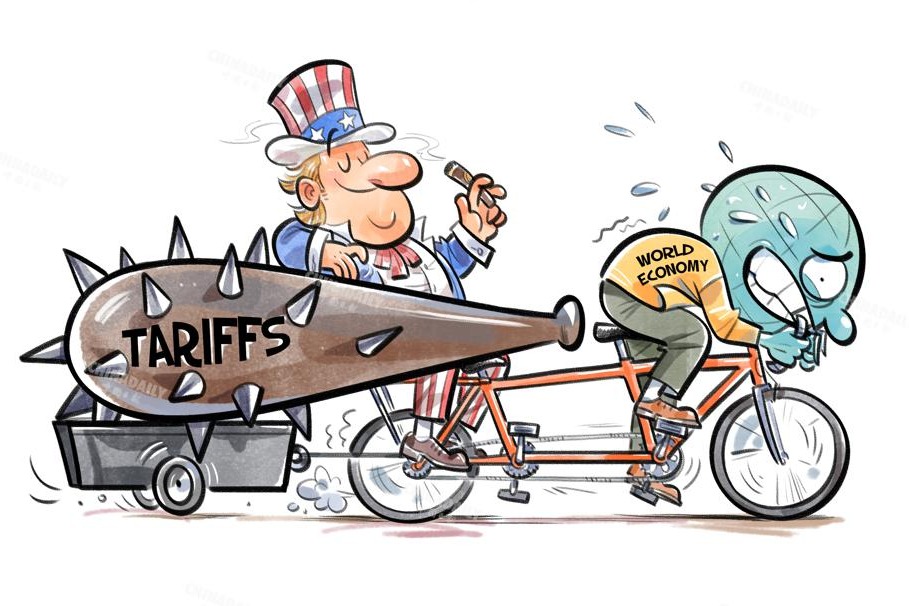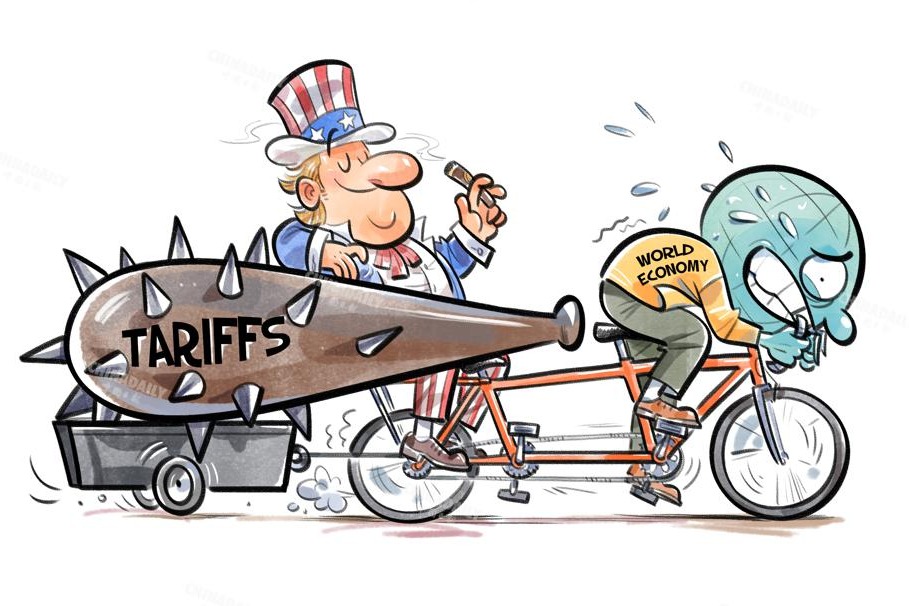Debt trap smears smack of imperialist intent to keep poorer countries poor: China Daily editorial


It's a popular refrain among US officials who seek to portray China as a scheming creditor and the debtor countries as naive and credulous victims. They claim that China is forcing poorer countries into debt traps, by convincing them into taking on loans for infrastructure projects that they can't afford and that offer few benefits, so that Beijing eventually takes control of these assets when the countries can't repay their loans.
Perhaps such claims spring readily from their lips because the United States' own development aid has always been a zero-sum game, as shown by Washington's attempts to thwart China-Nepal cooperation and sow the seeds of discord between the two neighbors.
Yet Washington's efforts to drive a wedge between China and other countries with such scaremongering founder on the reality of China's cooperation, which is premised on realizing mutual benefits.
Which was demonstrated once again last week, when during his talks with State Councilor and Foreign Minister Wang Yi in Qingdao, Shandong province, visiting Nepali Foreign Minister Narayan Khadka agreed to expedite China-supported development projects in Nepal.
The two sides reached consensus on pushing forward the construction of Trans-Himalayan Multi-Dimensional Connectivity Network, which as well as a China-Nepal cross-border railway, includes highways, communication networks, electric power interconnection projects and strengthened cooperation on pandemic response, disaster prevention and mitigation, and combating cross-border cybercrimes.
As part of the agreement, China will finance the feasibility study for the China-Nepal cross-border railway and will send experts to Nepal to conduct surveys this year.
China's cooperation with Nepal, as is true of its collaborations with any other country, does not target any third country. Instead, China welcomes all countries, particularly the developed ones with strengths in funds and technology, to participate and help promote the common development of the world.
But few of them are interested in such a proposal. Instead, they badmouth China with their allegations that it is laying debt traps, and display their own imperialist mindset.
These developed countries are more interested in the commercial projects with quick returns and fat profits, that are not in line with the less-developed countries' actual development needs. Their indifference to such infrastructure projects as the cross-Himalayan railway, stems from their failure to look at the bigger picture and indifference to the development needs of poorer countries.
It is estimated that over 90 percent of the planned China-Nepal railway, which will go through the highest mountain range on Earth and cross the borders of two continental plates, will be built on bridges or in tunnels, and construction cost per kilometer is about $30 million.
That daunting input and the technological difficulties have prompted many Western observers to allege that the building of the railway will be a mission impossible. Even the people of South Asia take it for granted that the Himalayas are insurmountable barriers.
Yet, drawing on the experience China has accumulated in numerous mission-impossible infrastructure projects on the Qinghai-Tibet Plateau, it is hoped that the feasibility studies of the Chinese engineers will be able to crack the difficulties.
If the railway can be built, it will open the broad Chinese market to the landlocked country, and connect China with South Asia as a whole, thus benefiting other regional countries as well.
China's commitment to the less-developed countries is rooted in its awareness that bridging the development gaps is the most cost-efficient solution of many deep-seated problems confronting the modern world.
































